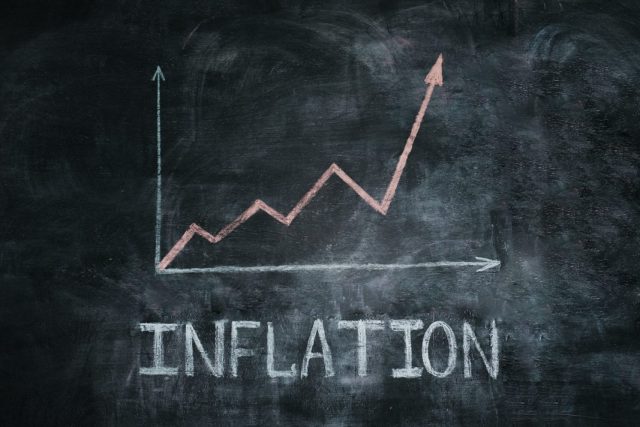Inflation remained at 1.5 per cent in November, official figures released on Wednesday showed – well below the Bank of England’s target rate of 2 per cent.
The consumer prices index (CPI) remained unchanged from the previous month’s rate, at its lowest level since November 2016. Economists had expected it to fall to 1.4 per cent.
Slower increases in tobacco prices and falling hotel accommodation costs offset larger price rises in event tickets, package holidays and food costs, keeping the Office of National Statistics’ (ONS) official measure of the purchasing power of pound sterling static.
Tobacco prices rose by only 1.7 per cent in November compared to 5.2 per cent the previous month, mainly due to duty increases, which happened over this period last year, being postponed this year due to the Budget being delayed by the general election.
The main foods pushing up the cost of groceries were sugar, jam, syrups, chocolate and confectionery, which rose by 1.8 per cent this year, compared with only 0.1 per cent last year. “Within this group, boxes and cartons of chocolates, and chocolate covered ice cream bars drove the upward movement,” said the ONS.
“The headline rate of inflation remained steady with prices rising across a variety of goods and services such as chocolate, concert tickets and package holidays, offset by falling hotel costs and cigarette prices rising substantially slower than this time last year,” said Mike Hardie, head of inflation at the ONS.
Core inflation, which is the consumer price index excluding energy, food, alcoholic beverages and tobacco, was also unchanged, at 1.7 per cent in November.
With the inflation rate unchanged at its lowest rate for three years, analysts are divided over whether the Bank of England’s monetary policy committee may move to adjust interest rates when they meet on Thursday.
“With inflation still well below target, little sign of underlying price pressures and GDP growth running below trend, an interest-rate cut on Thursday shouldn’t be completely ruled out,” Ruth Gregory, senior UK economist at consultancy Capital Economics, told the Financial Times.
However, David Cheetham of XTB told City A.M. that inflation holding where it had been expected to fall slightly “represents a small upside beat”, and that the figure comes close enough to the Bank’s target figure not to upset the monetary policy committee.
“After being widely criticised for becoming politicised following the Bank’s comments on the EU referendum it would not be at all surprising if they decide that the best course of action is no action at all,” he added.
Yael Selfin, chief economist at KPMG UK, told The Times: “Inflation is expected to remain well below the Bank of England’s target in 2020, thanks to price caps set on regulated utilities and a stronger pound, giving the Bank of England some room to act if the economy wobbles a little next year. The Bank may wish to secure a pre-emptive cut in rates, either in February or May, if recent economic weakness proves more persistent.”
The Bank is expecting inflation to fall to as low as 1.25 in early 2020 due to caps on energy and water prices, but expects it to be back on target in around three years’ time.
Wage growth has been boosted by high employment levels in recent months which, in conjunction with the low inflation rate boosting the value of real earnings, improves household finances, which in turn is expected to stimulate the economy.
“Christmas can be an expensive time of year, so it’s great that low inflation will help people’s hard-earned cash go further,”
commented Sajid Javid, chancellor.
After the figures were published, the pound dipped against the dollar by -0.3 per cent, to $1.308.
19th December 2019.









